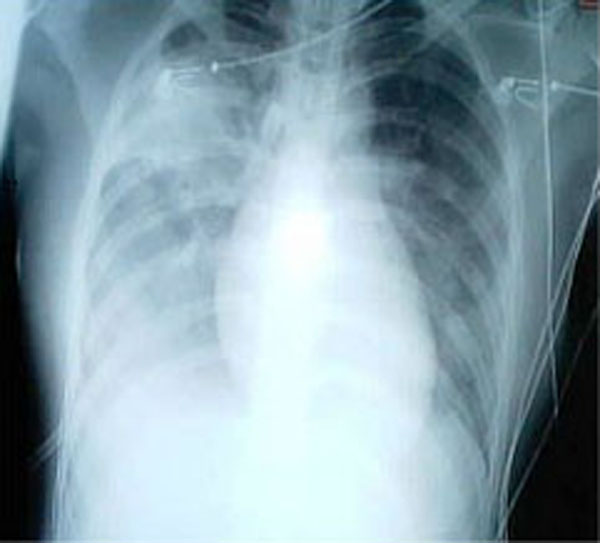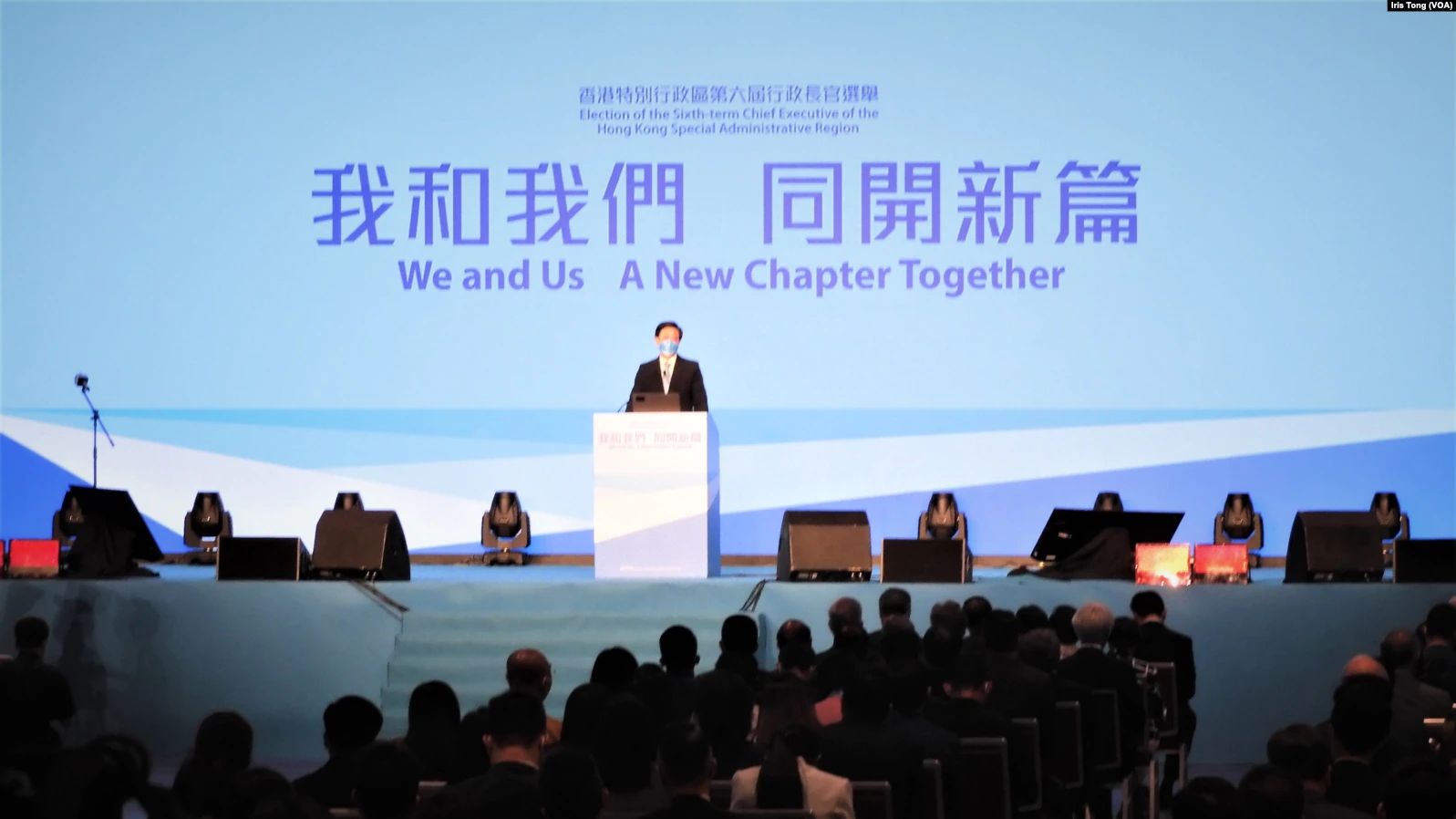|
Hong Kong Chief Executive Election, 2002
The 2002 Hong Kong Chief Executive election was to select the second term of the Chief Executive (CE) of the Hong Kong Special Administrative Region (HKSAR). Incumbent Tung Chee-hwa was nominated by the 800-member Election Committee (EC) without competition.Bush, Richard C. 005(2005). Untying the Knot: Making Peace in the Taiwan Strait. Brookings Institution Press. . pg 94. Background The Election Committee (EC) was responsible for electing the Chief Executive (CE). Before the Chief Executive election, a by-election was held on 6 January 2002 to fill the four vacancies in the Election Committee. Incumbent Chief Executive Tung Chee-hwa was supported by Chinese leaders for his re-election as early as 2001. Speaking in Myanmar in December 2001, Chinese paramount leader Jiang Zemin stated, "I wish that Mr. Tung will get elected. I am convinced he will get elected." Given the support and certainty of Tung's re-election, many observers argued that not only would it have been fut ... [...More Info...] [...Related Items...] OR: [Wikipedia] [Google] [Baidu] |
2002 Election Committee Subsector By-elections
The 2002 Election Committee subsector by-elections were held on 6 January 2002 to update the membership of the Election Committee for electing the Chief Executive of Hong Kong in the following Chief Executive election in March. Vacancies Four vacancies were identified in the following subsectors: # Architectural, Surveying and Planning Subsector, as Kaizer Lau Ping-cheung, being a Legislative Council member, was deemed to have resigned from the Election Committee on 21 September 2001; # Finance Subsector, as Antony Leung Kam-chung resigned from the EC on 28 March 2001 on his appointment as the Financial Secretary of Hong Kong; # Heung Yee Kuk Subsector, as Tsang Ngan-hoi had died on 25 August 2001; and # Legal Subsector, as Audrey Eu Yuet-mee, being a Legislative Council member, was deemed to have resigned from the Election Committee on 21 September 2001. Results General outcome Statistics are generated from the ''Report on the 2002 Chief Executive Election''. Finance ... [...More Info...] [...Related Items...] OR: [Wikipedia] [Google] [Baidu] |
The Frontier (Hong Kong)
The Frontier was a pro-democracy political group in Hong Kong. It was founded on 26 August 1996 by a group of Legislative Council members and democratic activists headed by Convenor Emily Lau. It was merged into the Democratic Party, the pro-democracy flagship party on 23 November 2008. A new party bearing the same name was established in 2010 by former members who opposed the previous Frontier joining the Democratic Party. Beliefs Among the pro-democratic parties, the Frontier took a relatively radical political agenda than the Democratic Party. Besides upholding human rights, rule of law and fighting for universal suffrage, it called for a new constitution drafted by the Hong Kong people to replace the Hong Kong Basic Law, which led to a direct confrontation to the PRC central government. For its continuing challenge to the central and SAR governments, it was described as a "head-bander" party. The group had a left wing position on economic matters, with both membership an ... [...More Info...] [...Related Items...] OR: [Wikipedia] [Google] [Baidu] |
Hong Kong Chief Executive Elections
Hong may refer to: Places * Høng, a town in Denmark *Hong Kong Hong Kong ( (US) or (UK); , ), officially the Hong Kong Special Administrative Region of the People's Republic of China (abbr. Hong Kong SAR or HKSAR), is a city and special administrative region of China on the eastern Pearl River Delta i ..., a city and a special administrative region in China * Hong, Nigeria * Hong River in China and Vietnam * Lake Hong in China Surnames * Hong (Chinese name) * Hong (Korean name) Organizations * Hong (business), general term for a 19th–20th century trading company based in Hong Kong, Macau or Canton * Hongmen (洪門), a Chinese fraternal organization Creatures * Hamsa (bird), a mythical bird also known was hong * Hong (rainbow-dragon), a two-headed dragon in Chinese mythology * ''Hong'' (genus), a genus of ladybird {{disambiguation ... [...More Info...] [...Related Items...] OR: [Wikipedia] [Google] [Baidu] |
General Secretary Of The Chinese Communist Party
The general secretary of the Chinese Communist Party () is the head of the Chinese Communist Party (CCP), the sole ruling party of the People's Republic of China (PRC). Since 1989, the CCP general secretary has been the paramount leader of the PRC. Overview According to the Constitution of the Chinese Communist Party, the general secretary serves as an ''ex officio'' member of the Politburo Standing Committee, China's ''de facto'' top decision-making body. The general secretary is also the head of the Secretariat. Since 1989, the holder of the post has been, except for transitional periods, the Chairman of the Central Military Commission, making the holder the supreme commander of the People's Liberation Army. The position of general secretary is the highest authority leading China's National People's Congress, State Council, Political Consultative Conference, Supreme People's Court and Supreme People's Procuratorate in the Chinese government. As the top leader of ... [...More Info...] [...Related Items...] OR: [Wikipedia] [Google] [Baidu] |
Hong Kong 1 July Marches
The Hong Kong 1 July protests was an annual protest rally originally held by the Civil Human Rights Front from the day of handover in 1997 on the HKSAR establishment day. However, it was not until 2003 that the march drew large public attention by opposing the legislation of Basic Law Article 23. The 2003 protest, with 500,000 marchers, was the second-largest protest seen in Hong Kong since the 1997 handover.Wong, Yiu-Chung. One Country, Two Systems in Crisis: Hong Kong's Transformation Since the Handover. Lexington books. . Prior to this, only the pro-democracy protest on 21 May 1989 drew more people with 1.5 million marchers in Hong Kong sympathising with the participants of the Tiananmen Square protests of 1989.Williams, Louise. Rich, Roland. 000(2000). Losing Control: Freedom of the Press in Asia. Asia Pacific Press. . The introduction of Article 23 legislation was left aside due to the protest. Since then, 1 July marches have been organised every year to demand fo ... [...More Info...] [...Related Items...] OR: [Wikipedia] [Google] [Baidu] |
Hong Kong Basic Law Article 23
Hong Kong Basic Law Article 23 () is an article in the Basic Law, the constitution of Hong Kong. It states that Hong Kong "shall enact laws on its own to prohibit any act of treason, secession, sedition, subversion against the Central People's Government, or theft of state secrets, to prohibit foreign political organizations or bodies from conducting political activities in the Region, and to prohibit political organizations or bodies of the Region from establishing ties with foreign political organizations or bodies." Attempts to implement the article and create the Hong Kong national security law have seen protests, particularly in 2003 and 2019. In 2020, the mainland National People's Congress imposed a security law on Hong Kong under Article 18 of the Basic Law. Content Article 23 of the Basic Law (BL 23) states: Background Article 23 had undergone significant revisions before the promulgation of its current form on 4 April 1990. The 1987 version of art.23 (Articl ... [...More Info...] [...Related Items...] OR: [Wikipedia] [Google] [Baidu] |
Severe Acute Respiratory Syndrome
Severe acute respiratory syndrome (SARS) is a viral respiratory disease of zoonotic origin caused by the severe acute respiratory syndrome coronavirus (SARS-CoV or SARS-CoV-1), the first identified strain of the SARS coronavirus species, ''severe acute respiratory syndrome–related coronavirus'' (SARSr-CoV). The first known cases occurred in November 2002, and the syndrome caused the 2002–2004 SARS outbreak. In the 2010s, Chinese scientists traced the virus through the intermediary of Asian palm civets to cave-dwelling horseshoe bats in Xiyang Yi Ethnic Township, Yunnan.The locality was referred to be "a cave in Kunming" in earlier sources because the Xiyang Yi Ethnic Township is administratively part of Kunming, though 70 km apart. Xiyang was identified on * For an earlier interview of the researchers about the locality of the caves, see: SARS was a relatively rare disease; at the end of the epidemic in June 2003, the incidence was 8,469 cases with a case fatality rat ... [...More Info...] [...Related Items...] OR: [Wikipedia] [Google] [Baidu] |
2022 Hong Kong Chief Executive Election
The 2022 Hong Kong Chief Executive election was held on 8 May 2022 for the 6th term of the Chief Executive of Hong Kong, Chief Executive (CE), the List of current Chinese provincial leaders, highest office of the Hong Kong, Hong Kong Special Administrative Region (HKSAR). Incumbent Carrie Lam, who was elected in 2017 Hong Kong Chief Executive election, 2017, declined to seek a second term for family reasons and finished her term on 30 June 2022. Former Chief Secretary for Administration, Chief Secretary John Lee (government official), John Lee was the sole candidate approved by the central government of China in the election and the only candidate to be nominated. He received 1,416 Election Committee (Hong Kong), electoral votes (99.44%) and assumed office on 1 July 2022. Background Universal suffrage advocacy The highest office of Government of Hong Kong, Hong Kong government, the Chief Executive, is selected by an Election Committee (Hong Kong), Election Committee (EC) dom ... [...More Info...] [...Related Items...] OR: [Wikipedia] [Google] [Baidu] |
Pro-Beijing Camp
The pro-Beijing camp, pro-establishment camp, pro-government camp or pro-China camp refers to a political alignment in Hong Kong which generally supports the policies of the Beijing central government and the Chinese Communist Party (CCP) towards Hong Kong. The term "pro-establishment camp" is regularly in use to label the broader segment of the Hong Kong political arena which has the closer relationship with the establishment, namely the governments of the People's Republic of China (PRC) and the Hong Kong Special Administrative Region (HKSAR). It is also labeled as the "Patriotic Front" by the pro-Beijing media and sometimes labeled as "loyalists" by the rival pro-democracy camp. The pro-Beijing camp evolved from Hong Kong's pro-CCP faction, often called "leftists", which acted under the direction of the CCP. It launched the 1967 Hong Kong riots against British colonial rule in Hong Kong and had a long rivalry with the pro-Kuomintang bloc. After the Sino-British Joint De ... [...More Info...] [...Related Items...] OR: [Wikipedia] [Google] [Baidu] |
Nonpartisan
Nonpartisanism is a lack of affiliation with, and a lack of bias towards, a political party. While an Oxford English Dictionary definition of ''partisan'' includes adherents of a party, cause, person, etc., in most cases, nonpartisan refers specifically to political party connections rather than being the strict antonym of "partisan". Canada In Canada, the Legislative Assembly of the Northwest Territories and the Legislative Assembly of Nunavut are the only bodies at the provincial/territorial level that are currently nonpartisan; they operate on a consensus government system. The autonomous Nunatsiavut Assembly operates similarly on a sub-provincial level. India In India, the Jaago Re! One Billion Votes campaign was a non-partisan campaign initiated by Tata Tea, and Janaagraha to encourage citizens to vote in the 2009 Indian general election. The campaign was a non-partisan campaign initiated by Anal Saha. Philippines In the Philippines, barangay elections (election ... [...More Info...] [...Related Items...] OR: [Wikipedia] [Google] [Baidu] |
.jpg)
.jpg)

